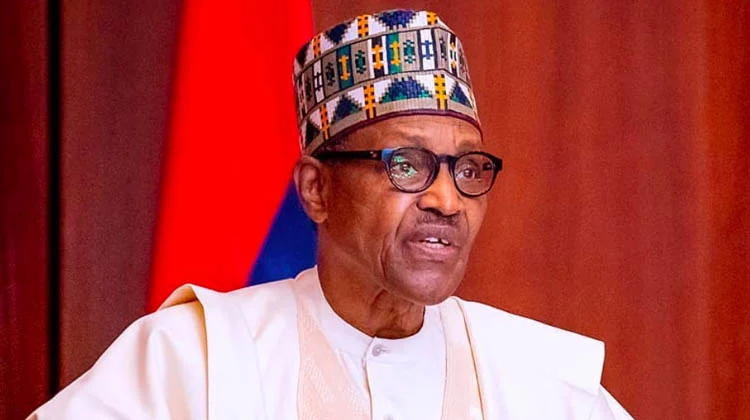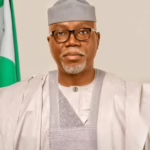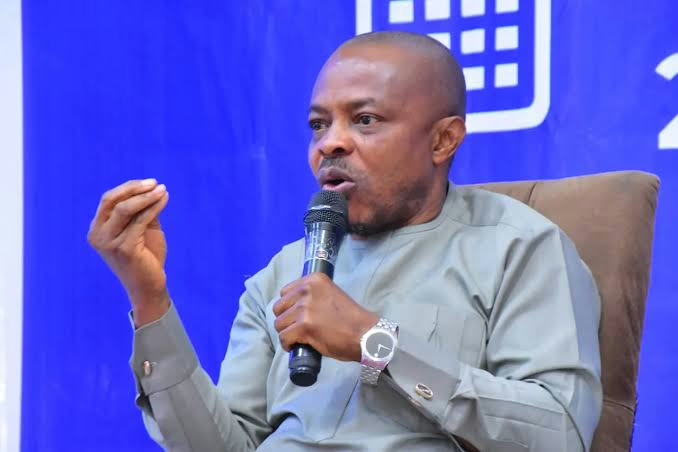Barely 24 hours after President Muhammadu Buhari had accused state governors of embarking on meaningless projects instead of wriggling Nigerians out of poverty the presidency has again put the states in the spotlight, this time, the nine oil producing states.
Buhari had on Thursday accused the governors of thwarting development in the country by tinkering with local government allocations, saying an unnamed state governor misappropriated half of local government funds.
On Wednesday, the federal government also blamed the high poverty rate in the country on state governors, alleging that the failure of the state governments to contribute their quota of development responsibilities is the reason why the poverty level has increased.
Taking on the governors yesterday again, Buhari, through the presidency, stated that nine oil-producing states received a total of N625.43 billion 13 percent oil derivation, subsidy and SURE-P refunds from the federation account in the last two years, 2021-2022.
In a statement by presidential spokesman, Garba Shehu, the presidency listed states that received the refunds dating from 1999 to 2021 to include Abia, Akwa-Ibom, Bayelsa, Cross River, Delta, Edo, Imo, Ondo and Rivers.
He said data obtained from the Federation Account Department in the office of the Accountant General of the Federation showed that a total of N477.2 billion was released to the nine states as refund of the 13 percent derivation fund on withdrawal from Excess Crude Account (ECA) without deducting derivation from 2004 to 2019, leaving an outstanding balance of N287.04 billion.
Shehu further explained that the states also got N64.8 billion as refund of the 13 percent derivation fund on deductions made by NNPC without payment of derivation to Oil Producing States from 1999 to December.
He said, “The benefitting States still have an outstanding balance of N860.59 billion windfall from the refunds, which was approved by President Muhammadu Buhari.
“According to the figures, under the 13 per cent derivation fund on withdrawal from ECA without deducting derivation from 2004 to 2019, Abia State received N4.8 billion with outstanding sum of N2.8 billion, Akwa-Ibom received N128 billion with outstanding sum of N77 billion, Bayelsa with N92.2bn, leaving an outstanding of N55 billion.
“Cross River got a refund N1.3 billion with a balance N792 million, Delta State received N110 billion, leaving a balance of N66.2 billion, Edo State received N11.3billion, with a balance of N6.8billion, Imo State, N5.5 billion, with an outstanding sum of N3.3 billion, Ondo State, N19.4 billion with an outstanding sum of N11.7bn while Rivers State was paid 103.6 billion, with an outstanding balance of N62.3 billion.
“The States were paid in eight installments between October 2, 2021 and January 11, 2022, while the ninth to twelfth installments are still outstanding.
“On the 13 per cent derivation fund on deductions made by NNPC without payment of derivation, the nine oil producing States were paid in three instalments this year, with the remaining 17 instalments outstanding.
“Under this category, Abia State received N1.1 billion, Akwa-Ibom, N15 billion, Bayelsa, N11.6 billion, Cross River, N432 million, Delta State, N14.8 billion, Edo State, N2.2 billion, Imo State, N2.9, billion, Ondo State, N3.7 billion, and Rivers State, N12.8 billion.
Meanwhile, Shehu noted that the benefitting states shared N9.2billion in three installments in April, August and November 2022 as refunds on the 13 per cent derivation exchange rate differential on withdrawal from the ECA.
He said the three largest benefitting States were Akwa Ibom (N1.6billion), Delta State (N1.4billion) and Rivers State (N1.32billion).
Similarly, the presidential spokesman pointed out that all the nine states received N4.7 billion each, totaling N42.34 billion as refunds on withdrawals for subsidy and SURE-P from 2009 to 2015.
He said the refund, which is for all the states and local government councils, was paid on November 10, 2022.
He added that the Federation Account also paid N3.52billion each as refund to local government councils on withdrawals for subsidy and SURE-P from 2009 to 2015 on the same date in November.
“President Buhari considers it a matter of honour and decency that debts owed to states or anyone for that matter be repaid, and in time without regards to their partisan political affiliations.
“The President will continue to render equal service to all the states of the federation and an acknowledgment of this by Governor Nyesom Wike of Rivers State and the others is not out of place. The refunds to the oil producing states will continue,” he added.
Name Those Pilfering LG Funds, Wike Challenges President
But Rivers State governor, Nyesom Ezenwo Wike, yesterday challenged President Buhari to as a true leader reveal to Nigerians the identity of the state governors pilfering local government funds.
He dissociated himself from state governors who dip their hands into local government funds received from the Federation Account.
Reacting to the accusation by President Buhari that governors have continued to deliberately deplete remittances released to various local councils in their states, Wike stated that since 2015, he has never had any reason to tamper with local government funds.
Wike who spoke during the inauguration of Mgbuosimini Ring and Internal Roads in Rumueme Kingdom of Obio-Akpor local government area said the generalisation done by President Buhari was unfair.
He said, “You said the governors are taking local government funds. I want to say in the name of almighty God, I have never touched local government funds one day.
“I have never and I have no reason to do that. So, Mr President, tell us who those people are. You know them, tell us. It is not good to make class defamation of governors. Please, I am not one of those governors.
“So, Mr President, please, spare me, tell Nigerians that the Integrity Governors are not part of them; we have integrity. And do us a favour to announce all those states that they are taking local government money because you have the records.”
The governor recalled that when he was a council chairman under the administration of former governor, Dr. Peter Odili, the governor then never touched their funds, an example he said he has continued to practice.
He noted that ordinarily, most of the road projects his administration has constructed should have been done by local government councils, but he has never asked any council for partnership to fund any project.
Wike said, “When I was chairman of local government under Dr. Peter Odili, he never touched one Naira of local government funds. When I was chairman, nobody touched my funds and I see no reason why I will begin to touch other people’s funds.”
The governor noted that his administration has also given optimal consideration to the payment of pension and gratuity.
According to him, over N3 billion is spent monthly by the state to cater to that concern.
On the Mgbuosimini roads, Wike said the inauguration was remarkable because he has always enjoyed over 98% support from the Rumueme kingdom.
The governor said, “In Rumueme Kingdom, I have always had 98 percent support. And I have told them, there is nothing within my powers that I can do that I will not do for them.”
Wike noted: “It is the benefit and dividend of democracy. So, you have done well for me. I will never turn my back against you. Rumueme people, God will continue to bless you for all you have done for me in my political career.”
The governor also hinted about employment in the state civil service soon and assured Rumueme people of filling their quota.
Performing the inauguration of Mgbuosimini Ring and Internal Roads, Benue State governor, Samuel Ortom, aligned with governor Wike that President Buhari should name the governors misappropriating council funds.
Ortom noted that by delivering such road projects to the community, governor Wike has improved the wellbeing of the people.
He said: “Governor Wike, I want to thank you for setting the pace in project execution. God will bless you. Like has been said, the essence of government, apart from providing security for life and property, is to ensure welfare, which you are doing here.”
Ortom mentioned that commissioning of projects was one vital he learnt from Wike, adding that he said has helped him to be more visible and seen to be a governor who delivers projects too.
The Benue State governor said: “One thing that I can say amongst others that I have learned from my brother, the governor of Rivers State is his commissioning of projects. Because if you don’t do it, your enemies will go out there to say this is the project they have done.
“And this is the blackmail that I faced back home in Benue State until governor Wike told me that look, you have to start commissioning projects.”
Governors Committed To Improving Livelihood Of Rural Dwellers – Inuwa
Also, Gombe State governor, Muhammadu Inuwa Yahaya, has said governors of the 36 states of the country have and will continue to give support to agricultural marketing and accessibility to farmers at the rural areas
He observed that the important role played by rural dwellers in food and livestock production presupposes that no effort should be spared by governments at all levels to incentivise them by providing connectivity and access to boost their morale for sustainable economic growth.
Governor Inuwa Yahaya stated this on Wednesday at the launch of $575 million Rural Access and Agricultural Marketing Project, RAAMP, to provide roads for farmers and boost rural economy, which took place at the nation’s capital, Abuja.
The project was officially launched by President Buhari, represented by Borno State Governor, Professor Babagana Umara Zulum.
RAAMP is an initiative of the federal government aimed at improving rural access and agriculture marketing in participating States and to strengthen the financing and institutional base for effective development, maintenance, and management of the rural road network.
The project is supported by the World Bank, French Development Agency (AFD), and International Development Association (IDA).
During the flag-off ceremony at the main auditorium of the Federal Ministry of Foreign Affairs, Governor Inuwa spoke on behalf of his colleagues from the participating states.
He noted that about 80 to 85 percent of Nigerians, especially in the North live in rural areas with agriculture as their major preoccupation.
He said that the ripple effect of agricultural activities on the Gross Domestic Product (GDP) of the country is indispensable.
Assuring that governors will continue to give support to agricultural marketing and accessibility to farmers at the rural areas, the Gombe governor said, “We have given this commitment and we shall continue to do so, and we are happy that the project will be scaled up to all the remaining states so that it can cover the whole of the country which I believe the benefits are going to be enormous, especially in agricultural production which is an area that people are really engaged in”.
The Governor added that in Gombe State, his administration initiated a road revolution project- the network eleven hundred which seeks to provide at least one hundred kilometers of roads in each of the eleven Local Government Areas of the State.
He explained that the initiative, which started in 2020 has so far covered a total of 320 kilometers of roads, criss-crossing the length and breadth of the State, opening up rural areas for increased agricultural and socio-economic activities.
Governor Inuwa however observed with concern how roads across the country are left to deteriorate without a sustained action on maintenance and rehabilitation.
The Gombe governor assured that states governors will commit to smooth implementation of RAAMP in order to ensure food sufficiency and create employment opportunities.
Also speaking, minister of Agriculture and Rural Development, Mahmood Abubakar, said, “The project will be jointly financed by the International Development Association, IDA, with a contribution of $280 million; French Development Agency (AFD) is contributing $230 million, and the Government is contributing $65 million respectively”.
Osinbajo Insists On Autonomy, Strengthening Of LGs
Meanwhile, Vice President Yemi Osinbajo has called for the establishment of local government councils as democratic and autonomous units with better control over their own resources.
He sought for the strengthening of the subnational administrative units via an explicit further devolution of powers to be more explicit concerning the functions of each tier of government.
According to him, sub nationals must play a greater role in matters like security, health care and education.
Above all, he said they must also ensure that they have the right calibre of people elected, freely and fairly, into local administrative positions.
Osinbajo stated this while addressing participants of the senior executive course SEC 44 of the National Institute of Policy and Strategic Studies NIPSS Kuru.
Speaking on on the theme, ‘Subnational Local Governance in Africa: Rethinking Policies, Frameworks and Institutions’, Osinbajo who was represented by the minister of Labour and employment, Dr Chris Ngige, said, “We have an opportunity to strengthening local economies, driving healthy competition and fostering innovation. We have an opportunity in this to better tackle the security challenges we are currently faced with.
“We have a better opportunity to allow the best and most qualified of us, across the States, across the Local Governments, to vie for political office and bring their talents and capacity to bear at this most crucial period in the history of our country.”
In his remarks the chairman of the occasion and the Emir of Kano, Alhaji Aminu Ado Bayero, said the national institute represents ideals of excellence and bedrock of national identity.
He pointed out that NIPSS provide intellectual engagement and ensure that no one is left behind in the development of the country, adding that the theme, ‘Subnational Local Governance in Africa: Rethinking Policies, Frameworks and Institutions’, is appropriate and relevant, as it provides a platform to discuss national issues and the need to strengthened governance at the local government level.
Credit: Leadership Newspaper











Leave a Reply